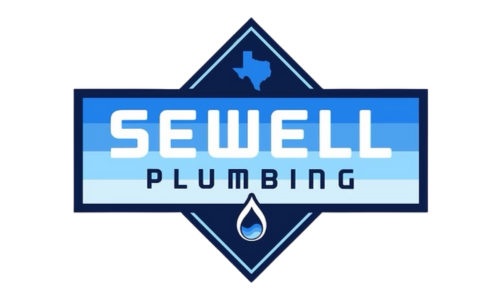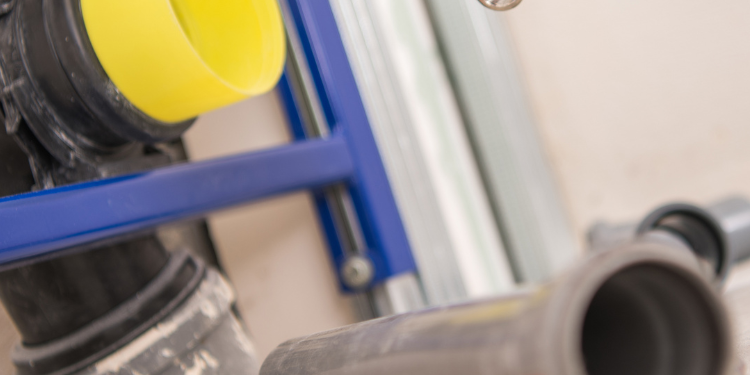Valves are crucial components in any plumbing system, whether it’s a small household in McKinney or a large office space in Frisco, Texas. They control the flow and pressure of water and ensure that the entire system operates smoothly. In this guide, we will explore the various types of plumbing valves and their applications, helping you better understand how your plumbing works and what you can do to keep it functioning optimally. Whether you’re considering a plumbing renovation in Allen, or need professional plumbing services in McKinney, understanding valves can help you make informed decisions.
Key Takeaway: Plumbing valves are essential for controlling water flow, pressure, and temperature. Different types of valves serve specific functions, and understanding these can help ensure a more efficient plumbing system.
Types of Plumbing Valves: Understanding Their Functions
Gate Valves, Ball Valves, and Globe Valves
Gate valves are one of the most common types of valves used in residential and commercial plumbing systems. These valves work by lifting a gate to allow water to flow or dropping it to stop the flow. This simple mechanism makes them a reliable choice for both main water lines and large pipe systems in McKinney homes. Ball valves, on the other hand, are known for their durability and quick shutoff capabilities. Using a ball with a hole in the middle, the valve rotates to control water flow. Globe valves are designed for regulating water flow, rather than simply turning it on or off, making them useful in systems that require fine control over water pressure and flow, such as heating systems in Frisco homes.
Check Valves, Pressure Reducing Valves, and Relief Valves
Check valves are essential for preventing backflow in plumbing systems. This is particularly important in homes and businesses where water contamination could pose health risks. Pressure-reducing valves, as their name suggests, lower the water pressure entering the plumbing system to prevent pipe damage, leaks, and unnecessary wear on fixtures. Relief valves play a critical safety role, particularly in systems with water heaters, by releasing pressure if it becomes too high. This ensures that plumbing systems remain safe and operational, especially in areas like Allen where high water pressure could cause significant damage.
Stop Valves, Butterfly Valves, and Mixing Valves
Stop valves are used in local applications, such as under sinks or toilets, allowing for easy shutoff during repairs or maintenance. Butterfly valves, often used in large commercial or industrial systems, offer a compact solution for controlling water flow. Mixing valves are particularly useful in hot water systems, as they combine hot and cold water to deliver water at a consistent temperature. This is vital in systems that rely on temperature control, such as in tankless water heaters, which are common in the McKinney and Frisco area.
Valve Materials and Their Importance
Brass, Stainless Steel, and PVC
Brass valves are highly durable and resistant to corrosion, making them a popular choice for residential plumbing systems. They are often used in outdoor applications due to their ability to withstand the elements, making them ideal for homes in areas like Allen. Stainless steel valves, while more expensive, offer even greater durability and resistance to wear, making them suitable for both residential and commercial systems. PVC valves are lightweight and resistant to chemical corrosion, making them an excellent choice for plumbing systems that carry water with chemicals or for homes that use well water in McKinney.
Copper and Cast Iron
Copper valves are highly resistant to bacteria, making them a good choice for potable water systems. They are also a popular choice in homes where water purity is a concern. Cast iron valves, on the other hand, are used in large commercial systems due to their strength and durability. They are less common in residential settings but can still be found in older homes in areas like Frisco.
Lead-Free and Specialty Valves
Lead-free valves are now required in all plumbing systems to comply with health and safety standards. These valves ensure that water systems remain free from contamination, protecting the health of your family or customers. Specialty valves, such as anti-scald valves or thermostatic mixing valves, are designed to offer additional safety and control in systems that require precise temperature regulation.
Maintaining and Replacing Plumbing Valves
Regular Inspections, Leak Detection, and Cleaning
Regular inspections of your plumbing system are essential for identifying potential valve issues before they become significant problems. Small leaks around valves can lead to water damage or even cause your system to fail, especially if left unaddressed. Leak detection services can help identify these issues early on, preventing costly repairs or replacements in the future. Cleaning your valves periodically can prevent the buildup of debris, which could cause malfunctions or inefficiencies.
Replacement Timing and Cost Considerations
Valves typically last a long time, but they do wear out over the years. Replacing a faulty valve before it fails completely can save you time, money, and water. The cost of replacing a valve depends on the type, material, and the complexity of your plumbing system. Homeowners in McKinney, Allen, and Frisco should seek professional advice to determine the best options for their needs. Check out our gallery for examples of past projects that involved valve replacements.
Professional Plumbing Services
While some minor valve repairs can be handled by a homeowner, many valve-related issues require the expertise of a professional plumber. A trained plumber can not only replace faulty valves but also ensure that your entire plumbing system is functioning efficiently. At Sewell Plumbing, we are proud to serve homeowners and businesses in McKinney, Allen, and Frisco with all their valve repair and replacement needs.
Answering Common Questions
What is the purpose of a check valve?
A check valve prevents backflow, ensuring that water only flows in one direction. This is essential for preventing contamination in potable water systems.
How often should plumbing valves be inspected?
It’s a good idea to have your plumbing system, including valves, inspected annually. Regular inspections can prevent leaks and identify any potential issues before they become major problems.
Can I replace a valve myself?
While it is possible to replace some simple valves on your own, it’s recommended to hire a professional plumber for complex systems or if you’re unsure of the correct procedure.
Valve Material Selection for Specific Systems
Choosing the right valve material for your system can significantly impact the longevity and performance of your plumbing. For example, brass valves are best suited for outdoor applications due to their corrosion resistance, while stainless steel valves offer superior durability in high-pressure systems.
How Valve Types Impact Water Efficiency
Different valve types affect the efficiency of your plumbing system. For example, ball valves provide quick shutoff, which can help save water in emergency situations. Mixing valves help maintain a consistent water temperature, improving both comfort and efficiency.
When to Contact a Professional Plumber
If you’re experiencing issues with your plumbing valves or unsure of their condition, it’s always best to reach out to a professional plumber. At Sewell Plumbing, we offer valve inspection, repair, and replacement services in McKinney, Allen, and Frisco, ensuring your plumbing system stays in top condition.
Resources for Further Reading:
Plumbing
Leak Detection
Water Heating







